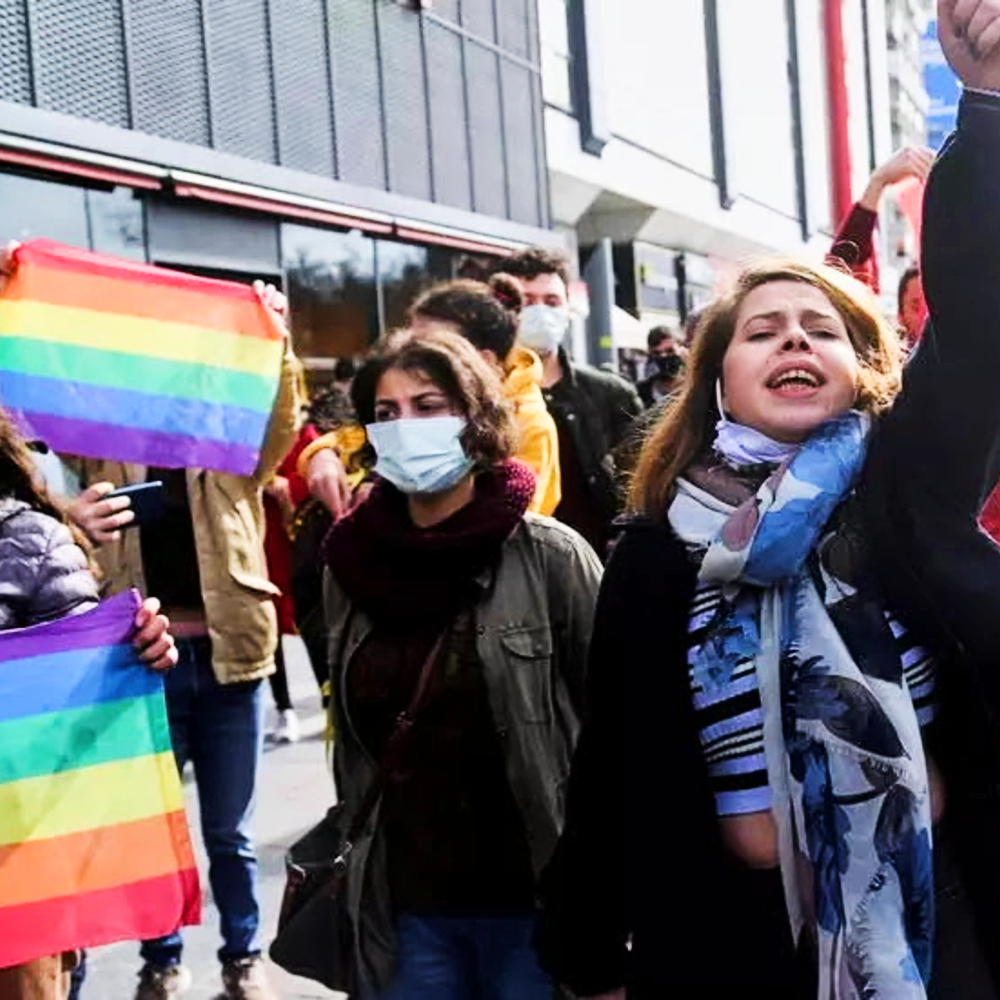Four Months of Protests: LGBTI Protesters, From Bogazici to Now
Starting in early January, students at Bogazici University went out into the streets to protest a new rector that was appointed by the government. The new rector has immense ties to the ruling Justice and Development Party (AKP), and many saw the appointment as nothing more than a blatant attempt to further control the education system within the country. However, after the arrests of LGBTI students over controversial artwork in late January, what was once an issue about government control in education has spiraled into anti-government and pro-democracy protests. This in turn has resulted in a sort of culture clash between the protesters and the current administration, with the concept of LGBTI acceptance and rights in society playing a large part of the continuing anger against the administration.
Much of the LGBTI communities entrance into these protests stems from the fact that many face harassment and discrimination, both from the government and in general society. Nothing speaks to this more than the statement of Havin Ozcan, an LGBTI activist and a student at the university, who reported that “I was subjected to sexual verbal violence by the police… the cops threatened me with rape.” Situations such as Ozcan’s are directly related to the reasons why the LGBTI community has come out in force for these protests. With the government turning more conservative and more authoritarian, it echoes what many in the LGBTI community across the globe feel: if there is no democracy, and hence no way to voice our struggle, things will certainly get worse for the community. This is especially relevant when considering minorities and the already discriminated against subsections of society.
Yet, the turn to this larger cultural battle of progressive versus conservative and democratic versus authoritarian is not only centered on government control of education and the LGBTI community. As mentioned earlier, women are also becoming increasingly involved in the protests (and are supported by the other protesters) because of the treaty withdrawal that occurred in late March. Turkey had been one of the first countries to sign this treaty, and the withdrawal of their status within it not only shocked the international community but also sent a further message to the protesters: the time to stand up for democracy was now, because protections against discrimination were slowly being chipped away by the government. Joining students and LGBTI protesters, women too are now saying, as student Selin Asarlar Celik put it, “we will not give up. We will be here until we get our freedom and our convention back.”
Students, LGBTI, Women, and Democracy
Today, the protests continue. It’s important to remember why they continue, however. No longer is this something that pro-democracy advocates can ignore. What is going on in Turkey is a real example of a conflict in which the government is slowly chipping away at core democratic foundations, and in which part of the populace is willing to go out in force against it. From students to LGBTI individuals to women to anyone willing to stand up to democracy, the Bogazici Protests and the ones coming after are an important thing to recognize as how many people are willing to come out and advocate for their rights, despite the threats of abuse and discrimination. There is no clear ending as of now, but as Busra Cabuk, an LGBTI individual and activist in Turkey, remarked, “this is why we are worried and we are scared, but we are making noise to not give up on our rights… this is why we are here as many women and LGBTI-pluses.”

Alexander Champeau, 26th April, 2021

